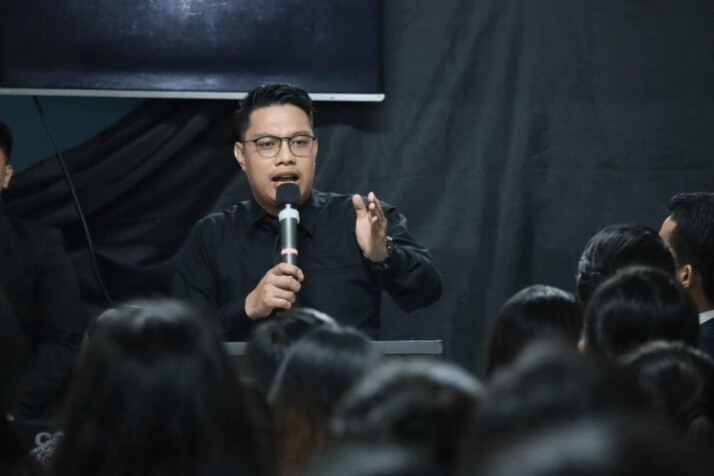One of the most important channel of expressing one’s arguments about a certain issue is public speaking. When engaging in one, you should be aware of instances of plagiarism in a speech.
Plagiarism is one of the worst enemies of writers and speakers. Not only does it decrease an individual’s credibility, but it also affects the delivery of your message. How would your readers and listeners believe anything you say if you blatantly steal another person’s intellectual property?
Plagiarism doesn’t only occur on written works. Sometimes, they’re also present in speeches that has poorly undergone review. What’s worse is that, in most instances of speech plagiarism, the speechwriter intentionally plagiarize.
Read this article further to know more about plagiarism in a speech.

What Does Plagiarism Mean?
Before knowing everything about speech plagiarism, we must first understand what plagiarism stands for.
Plagiarism is the act of taking another man’s written ideas, spoken words, or multimedia materials in your own work without acknowledging the source. It’s considered to be an intellectual theft, a legal abuse, and a crime of academic dishonesty. The moment a person finds out that you take ideas from someone else without proper citation, you can be sued.
The term plagiarism refers to when a person uses content from someone else’s work.
Then, claiming it to be the work of their own, without the appropriate citations and attributions. This can be done by taking complete sentences, phrases, paragraphs, or entire papers and presenting it as the author’s original work.
However, this is different from paraphrasing which is appropriate and is considered a form of creative and good communication technique.
What are Examples of Plagiarism in a Speech?
Speech plagiarism pertains to the act of plagiarism during a public speaking engagement. Such an instance can occur in various ways.
Quotes
The first of a few instances speech plagiarism can happen is when a public speaker uses a quote as if it’s his. An example would be a Mayoral candidate using Abraham Lincoln’s famous Gettysburg Address line about democracy without any citation. Some public speakers make this mistake. It can end up badly for them especially if the purpose of the speech is to gain the trust of a certain audience.
Data Sharing
Another part of a public speech which can be prone to plagiarism is when the speaker tries to share a data. An example would be a scientist trying to explain important information about a specific illness. If the scientist uses a sentence or idea from a peer-reviewed journal without citing it properly, he can be subject for plagiarism.
Credit-Grabbing
Some public speakers commit this type of speech plagiarism when they claim a certain project to be their initiative even if it isn’t. A good example would be a politician claiming a certain donation drive to be a part of his campaign even if it isn’t. A few people do this to impress the people they wish to persuade.
Three Ways to Avoid Speech Plagiarism?
Cite Quotes From Referenced Speeches
To avoid negative impression from your crowd, make sure to carefully cite an individual or group if you’re about to use their famous quote. It can be as simple as saying “As President Franklin Delano Roosevelt said” or “According to Martin Luther King, Jr.”. Observing this would save you from the stress of public humiliation.
Give Credit to References
If you wish to share data from researchers or other data specialists, make sure to give them credit. This goes the same for data you share even in the simplest form. Say “As the World Health Organization stated in their press release about the COVID-19 Pandemic” instead of just directly talking about the data.
Observe Honesty
It might sound cliché, but as many people would say, “honesty is the best policy”. Practice transparency in your speech, especially if you’re talking about projects other people initiated to do. Instead of taking the credit for yourself, your audience would appreciate it if you tell them who did such charitable act.
To Wrap Up
The key to avoiding getting caught plagiarizing when giving a speech is to be honest with yourself. Strive to deliver material that has never been presented in a speech before.
Try to write one that’s unique to your personal perspective on the topic at hand. Always do your research thoroughly before delivering a speech, and make sure you never plagiarize.
Explore All Plagiarism Checker Articles
Plagiarism in Journalism: Its Meaning and How to Avoid It
Writing is a wide array of interests that covers different professions and passions. In terms of news writing, journalists should…
The Difference Between Plagiarism and Appropriation in Art
People confuse the difference between plagiarism and appropriation. What they don’t understand is that these two terms differ from one…
6 Ways to Write Plagiarism Free Content — A Bloggers Guide
Generating unique plagiarism free content is one of the most important factors for optimizing your content and achieving higher SERP…
Using Plagiarism Checkers for Research Papers
With the web being so vast and expansive, it’s no wonder more, and more people are turning to it for…
6 Best Free Plagiarism Checker Online
What is the best free plagiarism checker today? You might have a paper or assignment due in the upcoming day,…
How to Copy and Paste Without Plagiarizing
The copy and paste function in your word processor is powerful. It can save your lots of time. But it…
